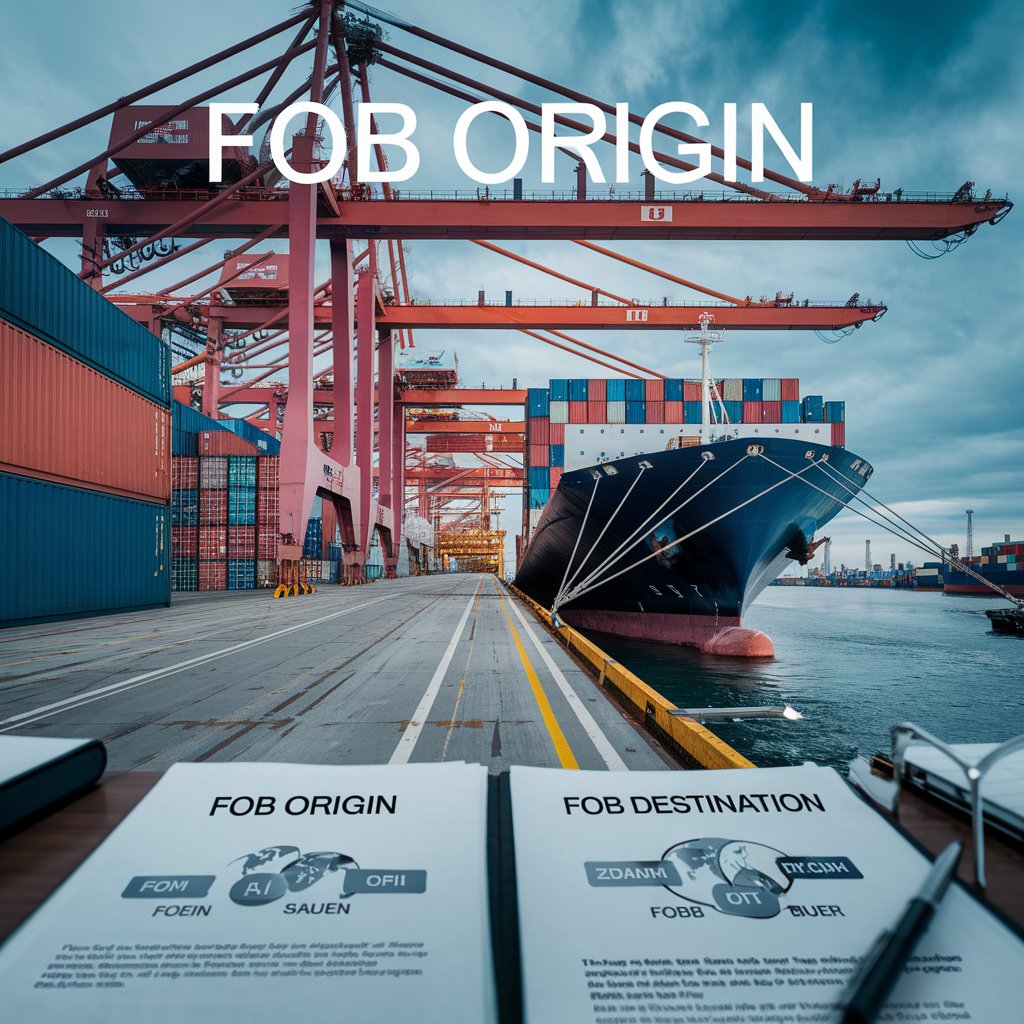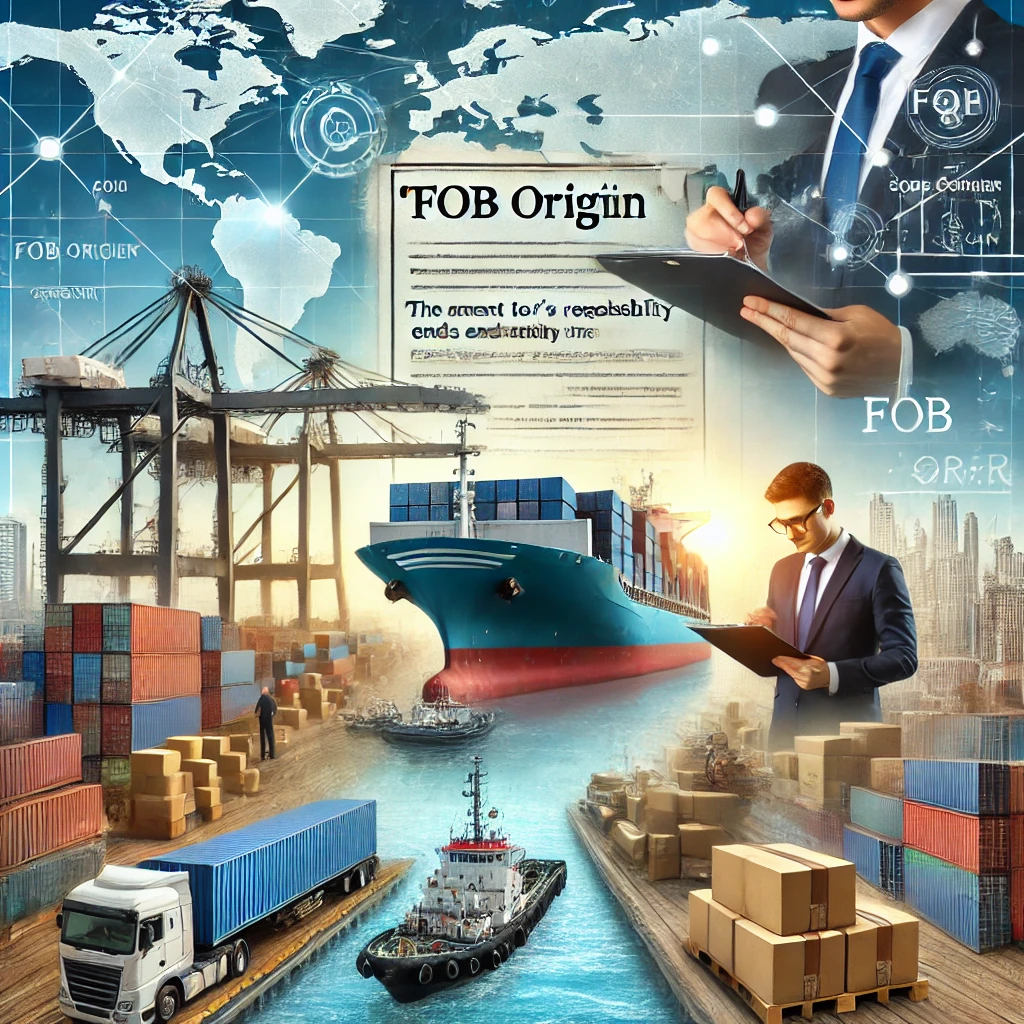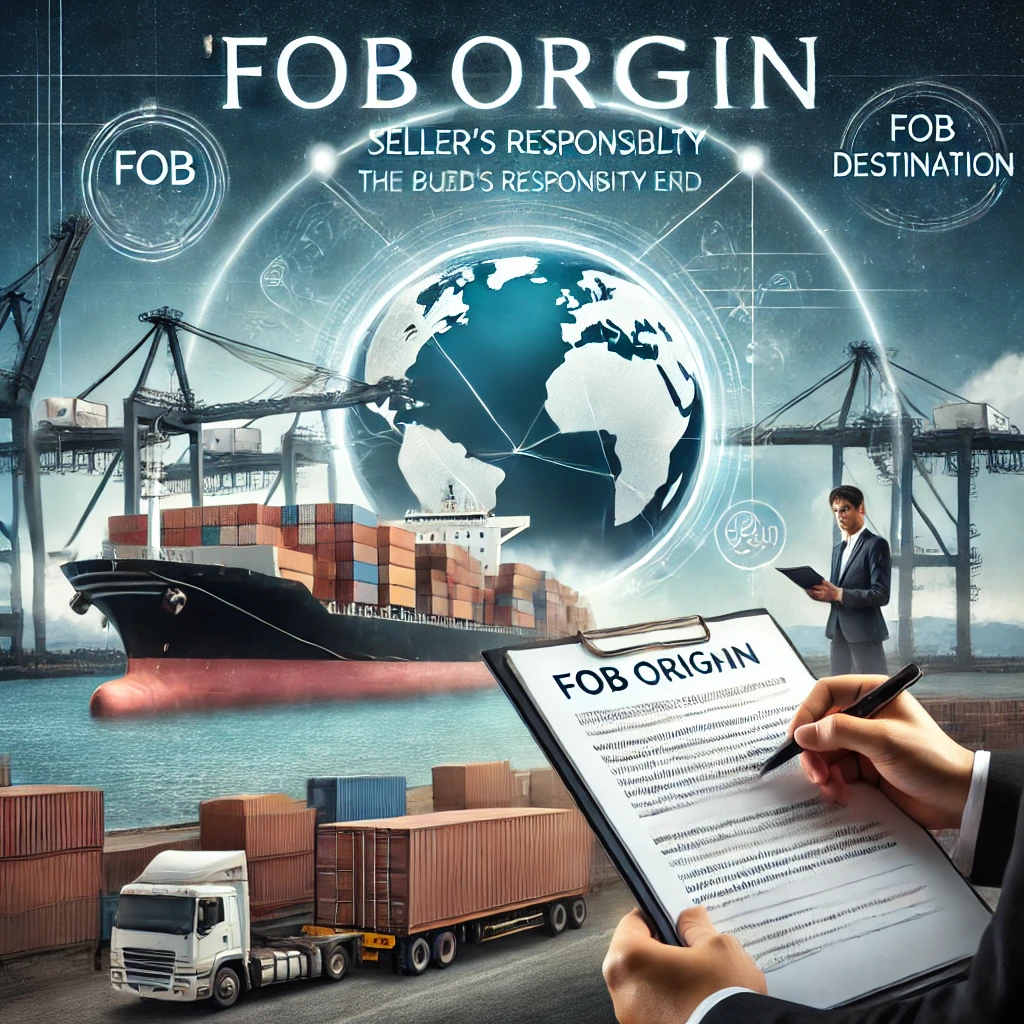FOB Origin: Understanding Its Importance in International Trade and Shipping

What is FOB Origin?
FOB Origin, which stands for “Free On Board Origin,” is a shipping term used in international trade. It’s one of the Incoterms (International Commercial Terms) established by the International Chamber of Commerce (ICC) to define the responsibilities of buyers and sellers in international transactions.
Key Points:
- The seller is responsible for goods until they are loaded onto the shipping vessel at the origin port.
- The buyer assumes responsibility and risk once the goods are on board the ship.
- The buyer is responsible for freight costs from the origin port to the final destination.
FOB Origin vs. FOB Destination
To fully understand FOB Origin, it’s essential to contrast it with its counterpart, FOB Destination:
FOB Origin:
- Seller’s responsibility ends at the origin port
- Buyer owns goods in transit
- Buyer pays for shipping and insurance
FOB Destination:
- Seller’s responsibility extends to the destination port
- Seller owns goods in transit
- Seller pays for shipping and insurance

Implications of FOB Origin for Buyers and Sellers
For Sellers:
- Reduced liability during transportation
- Lower shipping costs
- Faster transfer of ownership
For Buyers:
- Greater control over shipping arrangements
- Potential for lower overall costs
- Responsibility for goods during transit
When to Use FOB Origin
FOB Origin is particularly advantageous in certain situations:
- When buyers have established relationships with freight forwarders
- For large volume shipments where buyers can negotiate better shipping rates
- When buyers want more control over the shipping process
- In situations where sellers don’t have expertise in international shipping

Financial Implications
Understanding FOB Origin is crucial for accurate accounting and financial planning:
- Inventory Valuation: Under FOB Origin, the buyer records inventory as soon as it’s shipped, even if it hasn’t been received.
- Cost Allocation: The buyer must account for shipping costs separately from the cost of goods.
- Risk Management: Buyers need to consider insurance for goods in transit.
Legal Considerations
FOB Origin has important legal implications:
- Title Transfer: Ownership of goods transfers to the buyer at the origin port.
- Risk of Loss: The buyer bears the risk of loss or damage during transit.
- Insurance Responsibility: The buyer is responsible for insuring the goods during transportation.
Common Misconceptions
- Myth: FOB Origin always results in lower costs for the buyer. Reality: While it can lead to cost savings, it depends on various factors including shipping rates and volume.
- Myth: The seller has no responsibilities after loading the goods. Reality: The seller is still responsible for providing necessary export documentation.
- Myth: FOB Origin is always the best choice for international shipments. Reality: The best Incoterm depends on the specific circumstances of each transaction.

Best Practices
- Clear Communication: Ensure all parties understand their responsibilities under FOB Origin terms.
- Documentation: Maintain thorough records of when goods are loaded and ownership is transferred.
- Insurance: Buyers should arrange appropriate insurance coverage for goods in transit.
- Freight Forwarder Relationships: Buyers should establish relationships with reliable freight forwarders.
- Cost Analysis: Regularly compare costs between and other Incoterms to ensure it remains the most cost-effective option.
FOB Origin in the Digital Age
As e-commerce and digital trade continue to grow, FOB Origin remains relevant:
- Digital Documentation: Electronic Bills of Lading and other digital documents are streamlining the process.
- Blockchain in Shipping: Emerging blockchain technologies are enhancing transparency and traceability in shipments.
- Real-time Tracking: Advanced tracking systems allow buyers to monitor their shipments from origin to destination.

Challenges and Solutions in FOB Origin Shipping
Generally speaking, anybody involved in international trade can leverage the benefits of a good freight forwarding companies, making the entire process painless and stress-free.
Even the largest cargo owners of the world work with freight forwarding companies for a part of their business as the flexibility and knowledge freight forwarders add to the supply chain network can prove to be really beneficial.
A freight forwarder can become an extension to your business in numerous ways. They can either be your outsourced shipping or adviser who adds valuable insight into the process of import and export to save you time and money.
Invest in a solution that’s dynamic, adaptable, and innovative. With Linbis, step into the future of warehouse management where technology, efficiency, and user experience coalesce to create a symphony of operational excellence.
Conclusion
FOB Origin is a crucial concept in international trade, offering both opportunities and challenges for buyers and sellers. By understanding its implications, businesses can make informed decisions about their shipping arrangements, potentially leading to cost savings and improved efficiency in their global supply chains.
As international trade continues to evolve, staying informed about shipping terms like FOB Origin remains essential for businesses aiming to compete in the global marketplace. Whether you’re a seasoned importer or just starting to explore international trade, a thorough understanding of FOB Origin will serve you well in navigating the complexities of global commerce.
